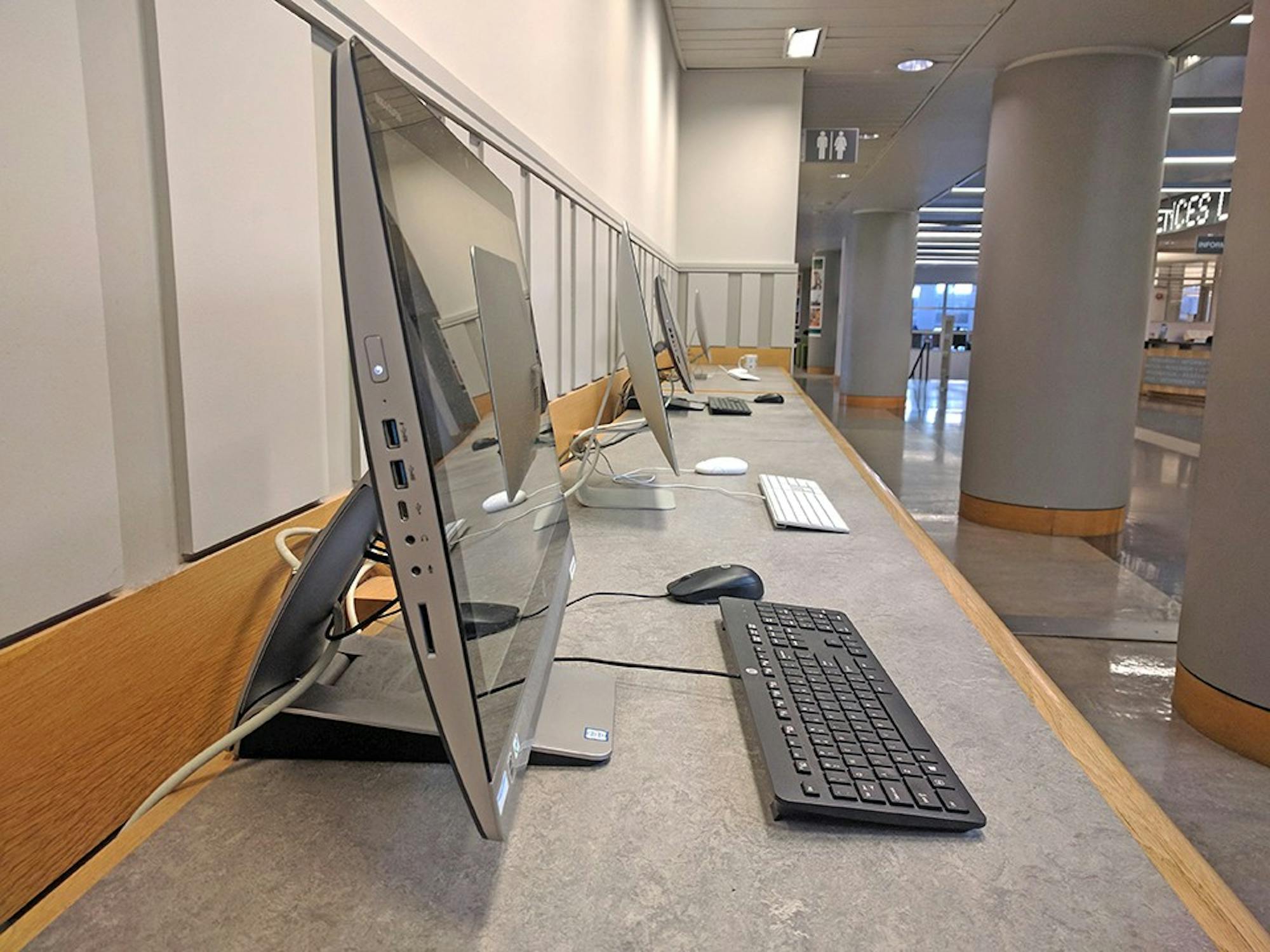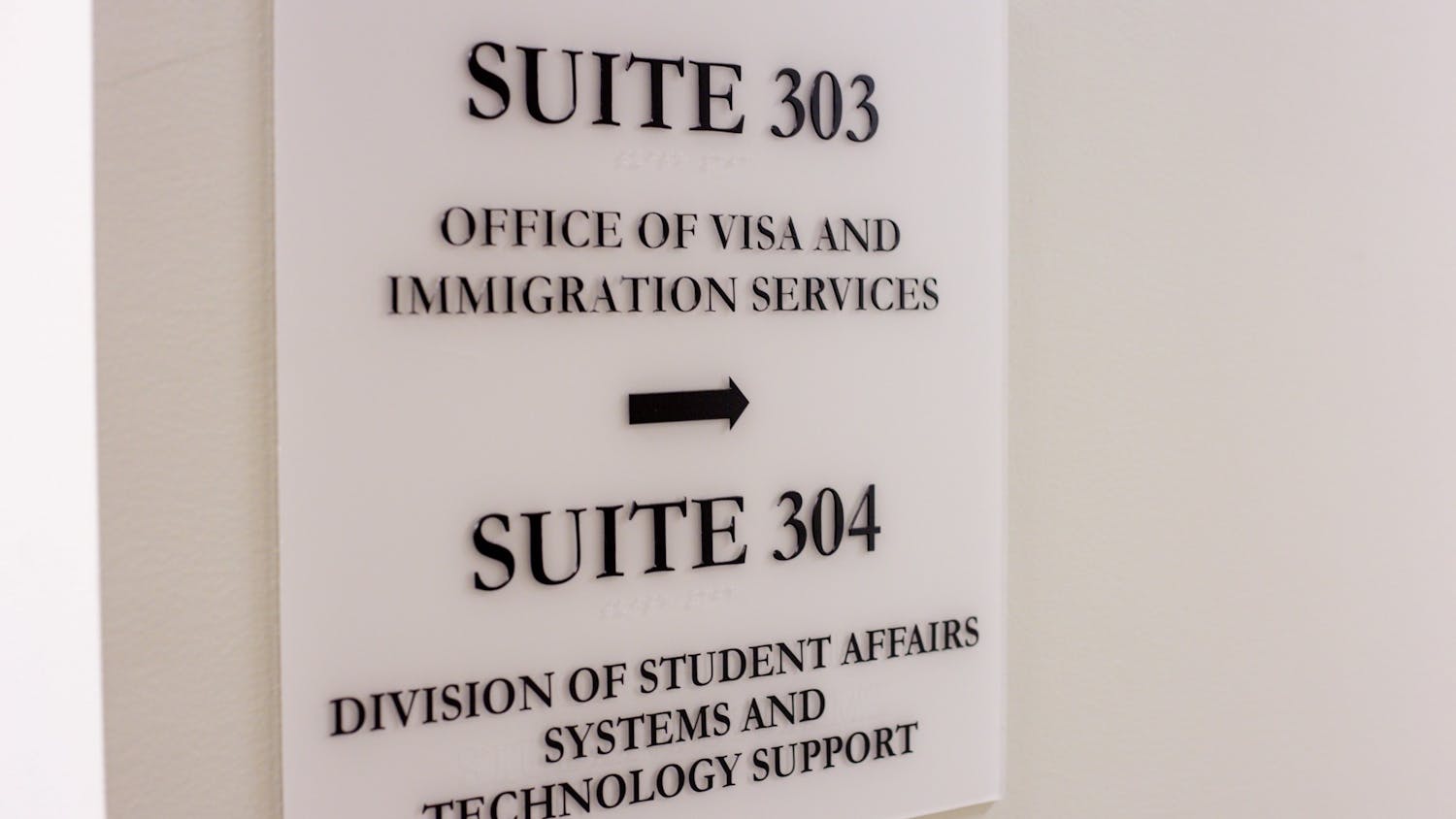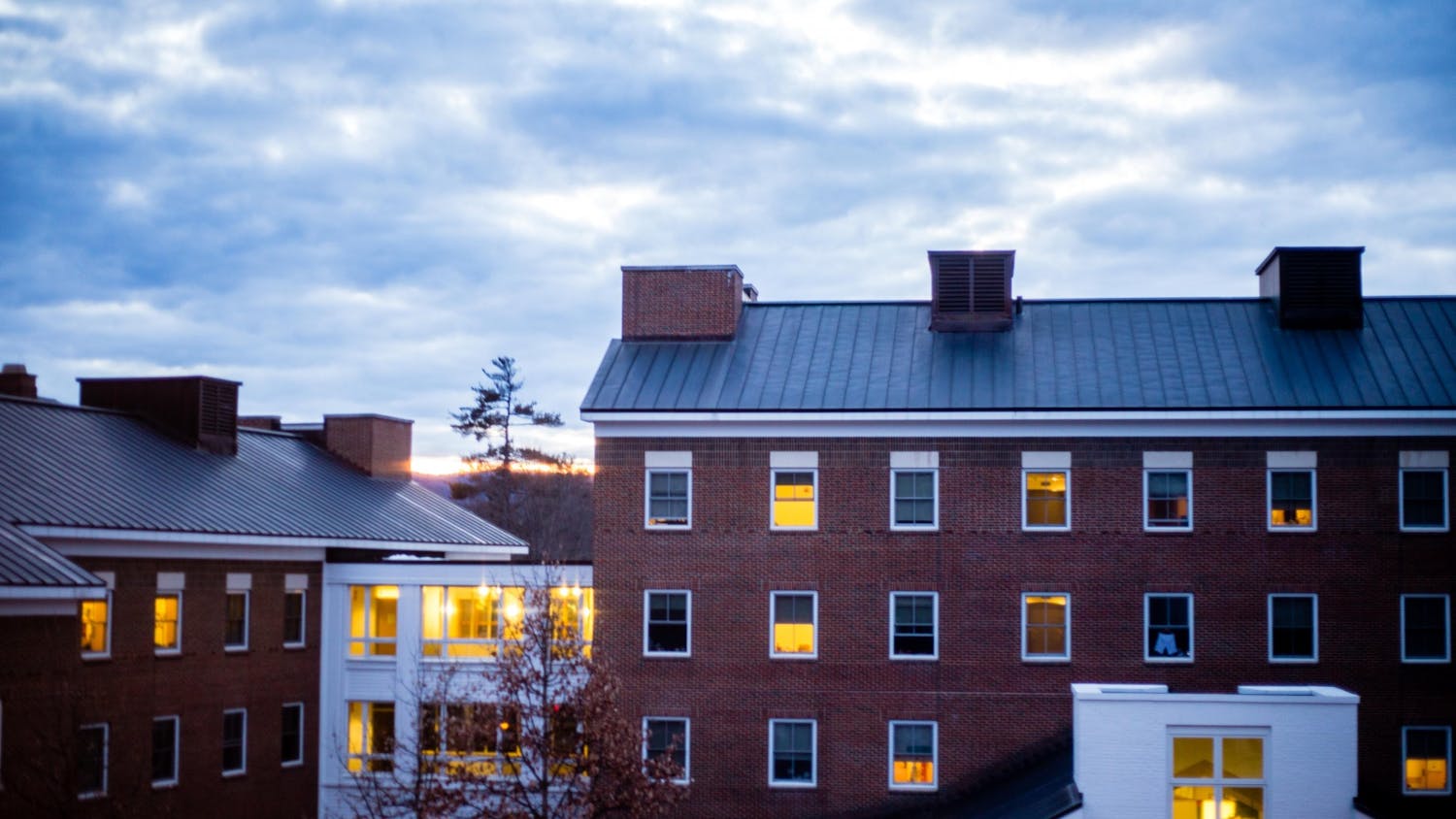Protests in Hong Kong may seem far away for most Dartmouth students, but the Chinese government’s response — a new national security law with worldwide implications — has brought concerns about censorship and surveillance to Dartmouth itself. In the law’s wake, the College has issued a set of guidelines encouraging professors to take precautions when teaching about topics considered unpalatable by Beijing.
The Hong Kong National Security Law was passed in China this summer in reaction to pro-democracy protests in Hong Kong. The law criminalizes separatist or subversive activity, including speech about topics “objectionable to the Chinese government,” according to a Sept. 11 memo sent by faculty of arts and sciences dean Elizabeth Smith to “fall 2020 instructors whose course curriculum deals with China.”
Topics covered by the law include those deemed contrary to the Chinese government’s interests, experts said. These include the protests in Hong Kong, the persecution of Uighurs in Xinjiang, the status of Tibet and Taiwan, China’s practices of online surveillance and censorship and the 1989 Tiananmen Square protests.
The broad scope of the law constitutes a “threat to online security” for some students, the memo says. The memo and experts alike warn that the law is not limited to speech or actions that take place in Hong Kong, making it potentially applicable to any “objectionable” speech by anyone, anywhere in the world. Bonnie Glaser, director of the China Power Project at the Center for Strategic and International Studies, said that while enforcement of the law outside of China’s borders is difficult, the law could be used against foreigners who travel to or through the country.
Amnesty International researcher Kai Ong agreed that the Chinese or Hong Kong governments could try to arrest anyone they think has violated the law, “regardless of where you are and regardless of your nationality.”
The Dartmouth memo focuses on the threat posed to international students from mainland China or Hong Kong, especially if they are taking online classes while in China. That group of students, the memo says, “could be at risk” if they address controversial topics in assigned coursework.
“It is reasonable to be concerned that classes might be monitored, and that if students voice opinions that are seen as engaging in criminal behavior, that they could be harassed and intimidated — they could be threatened,” Glaser said. “If someone says something that was truly inflammatory — supporting, for example, the June 4 protests [in Hong Kong] and encouraging the Chinese people to repeat that episode — surely, they could be ‘disappeared.’”
In the memo, the College recommends that professors “alert and inform” students about the potential legal liabilities that the law creates. For students who may be at risk, it suggests a number of technical measures, including removing identifying information and metadata from submitted assignments, disabling video on Zoom and turning off recording and transcription. Finally, it suggests that students be excused from participation grades in assignments where anonymity is “not possible.”
“These measures,” the memo concludes, “may help but they cannot not guarantee full digital security for students.”
Students, professors, take precautions
The national security law was written intentionally vaguely, Ong said, in order to generate uncertainty around what speech is illegal.
“The law is so vague that no one really knows how they would transgress the law,” she said. “The problem is that it creates this chilling effect.”
Brian Kot ’21, a student from Hong Kong who has been active in pro-democracy activism, explained that since there is “no clear way of knowing” whether you’ve violated the law, it “induces citizens to self-censor.”
“[The law] induces them to avoid saying things that they think might trigger or might cross the red line — and the fact is, every person has a different idea of what the red line is,” Kot said.
Kot, who is living on campus this term, said that while activities and speech on campus may not appear “dangerous” at the moment, the law leaves open the possibility of future prosecution.
Were he to return to Hong Kong, though, he said classwork with “any slight condemnation or any slight criticism of the government in China” could potentially put him in danger — though he could not say for sure.
Jenny Ge ’23, a student from Beijing, said that she already was “very careful” about what she said or wrote before the law, an impulse she credits partly to a “repressive” education system in China that does not encourage disagreement with authority.
The law also presents challenges for professors teaching about topics considered taboo by the Chinese government or who rely on access to China for research.
Government professor Jennifer Lind, who this fall is teaching GOVT 50.16, “Rise and Fall of Great Powers,” added a note to her syllabus suggesting that any Chinese nationals concerned about course content should contact her to arrange anonymization of their coursework.
“It was extremely depressing to do so,” Lind wrote in an email statement, “but important to start a conversation with our Chinese national students who may be worried about their situation. We want them to both get a great Dartmouth education and feel secure as they do so.”
An August article in The Wall Street Journal details similar measures being taken at schools including Amherst College, Harvard University and Princeton University.
History professor Pamela Crossley, who specializes in modern Chinese history, said any changes to classes would be up to individual professors.
“Some will decide, ‘well, sorry, no matter what the risk, I’m not altering what I do in the classroom,’” she said. “I think [the law] has the distinct potential to extend the self-censorship issue to the classroom.”
Crossley also expressed concern that students may self-select out of classes that deal with sensitive material, and added that it was likely some Chinese students were doing this prior to the law’s passage.
Professors who work in China have also had to tread lightly amid uncertainty. Asian Societies, Cultures and Languages program chair Allen Hockley noted that professors in his department may need to exercise caution when speaking about the law.
“China scholars need to be careful what they say if they want a career,” Hockley wrote. “[They] need access to China for their research.”
Several professors in the government and religion departments, as well as the ASCL program, did not respond to or declined requests for comment.
Although the recent law raises new issues, censorship related to China is not a new problem. Anthropology professor Sienna Craig, who studies cultures in Nepal and Tibet, wrote in an email that she has “had to deal with various issues over the years working in Tibet,” and that she is “very careful” to monitor her words and actions when in China for that reason. She also referred further comment to other professors.
The Office of General Counsel referred requests for comment to College spokesperson Diana Lawrence, who declined to comment on whether the College has an official stance on the law. The Office of Visa and Immigration Services did not reply to multiple requests for comment.
Security uncertain in the age of Zoom
Students and professors have both expressed concern that Zoom is not a safe platform under the new law, citing concerns about Chinese influence.
Association for Asian Studies guidelines cited in the Dartmouth memo state that U.S. data has been routed through Chinese servers and that “Zoom and other online meeting providers will have limited ability to prevent state intrusion by the governments in the countries where they do business.”
Information, Technology and Consulting chief information officer Mitchel Davis said that in his conversations with Zoom leadership, they have assured him that the company has handled the privacy issues that arose in the spring as millions of people moved onto the platform due to COVID-19.
“We can create a secure solution for Zoom,” Davis said, adding that security is “not a problem anymore,” and Zoom is “as focused as any other company on making sure that it is secure.”
However, one of the technical changes suggested in the memo — allowing students to join Zoom calls from “throwaway” email accounts — may also be illegal in China upon further consideration, Davis said. He said ITC is working on “finding a better way as quickly as possible,” but did not specify further.
Crossley said that due to uneasiness about security, she uses Webex for her classes and pays for it herself. Kot said that Zoom is “notorious” in Hong Kong for being influenced by the mainland.
“There are widespread concerns that Zoom may betray users’ privacy and information,” Kot said. “I would be more cautious on Zoom.”
Going forward, it remains to be seen how stringently the law will be enforced on international students, but the fact that universities have seen a need to act is telling, Kot said.
“The fact that college faculties are worried that they might put students in trouble, it’s akin to the Chinese government holding overseas students hostage,” he said. “They’re using those overseas students for putting pressure on U.S. campuses to silence them or to tone them down.”
Ge said that the academic freedom in the U.S. is something she appreciates about being able to study here.
“Those kinds of freedoms, or liberties, should not be taken as granted,” Ge said.





